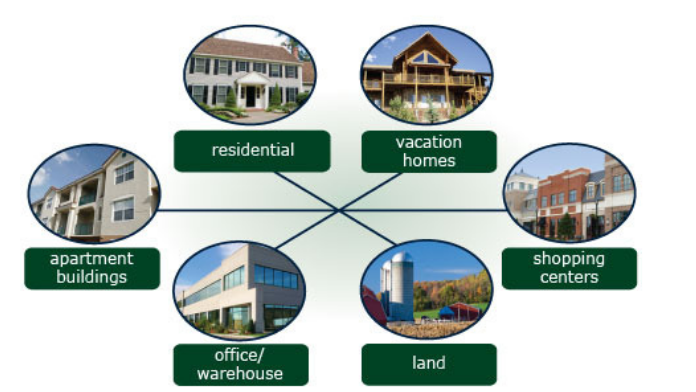Starting this great venture of owning a real estate property or investing in one is full of fun and excitement but accompanied by so many responsibilities and issues. On the question of the successful functioning of real estates, the crucial aspect remains management. However, what is real estate management and why is it necessary to understand it in order to become successful in the sphere of property and real estate investment?
Real estate management can be defined generally as the process of supervising properties with a view to putting and running them into productive and profitable use. It incorporates varied activities whereby the organization oversees all undertakings starting from routine activities to the most strategic ones. Remember it as the unseen force that runs the wheels in the affairs of property business.
The Pillars of Real Estate Management
Real estate managers or property managers do not usually get the credit they deserve, and yet they are vital in managing everything. They source the tenants, remind the tenant to pay. Their rent and also fix any problems that may be with the house or dwelling at a certain fee.
In other words, they are real ‘jack of all Trades’ they keep properties functioning smoothly like the wheels of a giant machinery. Real estate management comprises several key components, each playing a vital role in the overall success of a property:
Tenant Relations: First of all, the relationships with tenants should be friendly and warm. Real estate managers interact between the owners of the property and the tenants and see to it. That they get the services they are entitled to and any complaints are solved in an efficient manner.
Financial Stewardship: Promising excellence in operations, real estate managers monitor the finance including budgeting, rent collection and financial. Their goal? Finding ways to make as much of a profit as possible while spending as little as possible.
Legal Guardianship: Real estate management is surrounded by a tremendous amount of legalities. Including landlord-tenant legislation, fair housing statutes, and other related issues. However real estate managers understand them fully well. It stipulates to guarantee the properties stay compliant and protected from escaping legal risks.
Asset Enhancement: Real estate is a business and like any business it has to be cultivated to grow. The heads of property investment and development engage in activities aimed at increasing. The value of owning property whether through fixing up properties, redeveloping. Them or engaging in communities activities among many other activities.
Why Real Estate Management Matters
Real estate management isn’t just about maintaining properties it’s about creating value, mitigating risks, and fostering thriving communities. Here’s why it matters:

Peace of Mind: Hiring a good real estate manager puts your property in safe hands and this is wines whenever you are away from the property.
Optimized Returns: The practice of management can increase the income of several property resulting to increased revenue to the owners and investors.
Tenant Satisfaction: Every real estate business person will agree with me that their tenants are their main source of business. Real estate managers tend to make sure that the needs of the tenants are met. Hence the satisfaction and retention of tenants.
Future Growth: Strategic management is framing up the properties for further development and growth in the marked ensuring. That they are well poised to effectively and efficiently compete in the market.
In property management functions and tasks is the elusive ingredient that makes the difference between property management and property. No, matter whether you are an expert in investing or you invest in real estate for the first time.
It is critically important to understand the basics of the field of real estate management for thriving in this promising and changing specialty. Therefore, sit back comfortably as we roll on the journey. That aims at demystifying real estate management and unveiling the interfaces to property fortunes.
What Does it Mean to Manage Real Estate?

Handling property is more than tenants, rent or even maintenance of a dripping pipe. There is a lot that goes into managing a property. It is proposed to discus, what management really is for real estates and what aspects can be considered as its parts.
Strategic Stewardship of Assets
In its simplistic form, management of real estate deals with the planning, organizing, leading. Directing of property investments with a view of enhancing on their productivity and profitability over time. This constitutes establishing objectives, Courses of action, and decisions that suit the purpose of property owners or investors. Whether it is increasing the rental income, increasing the value of property or decreasing. The operating costs- efficient management of the real estate means looking into the future.
Operational Excellence
Real estate management therefore entails the overall effective running of the properties with especial reference to the day to day running. Whether receiving messages concerning maintenance requirements or a problem area to attending to client complaints and overseeing. The terms of the lease real estate managers are the wheels that keep the machinery of a property functioning. These skills involve paying attention to details, as well as muting problems before. They reach the level of emphatic complaint, which would decrease tenant satisfaction; conversely. The skills contribute positively to the maintenance of property value for more details click answer tenant.
Financial Prudence and Accountability
Real estate management entails a strategic approach to the financial aspect, including expenditure, record keeping, and belching. Real estate managers are employed with the responsibility of managing incomes and expenditure, the flow of cash and the appropriate financial results. Through the above practices along with applying rules within the set budgets. They assist the property owners or investors in accomplishing their financial goals and objectives by managing risks and revenues.
Compliance and Risk Management
Leigh and Clayton, (1999) opined that another significant factor that poses great challenge in real estate management is legal and regulatory framework. Real estate managers need to know all the laws that pertain to the real estate industry. And the landlord and tenants’ relationship, fair housing, building codes, and zoning laws. Thus, as legal watchdogs, they protect the property owners’ or investors’ interests and uphold the sanctity of the property within their stewardship.
Building Relationships and Fostering Community
Real Estate stewardship is not only dealing with buildings and apartments. It is about people and creating lively communities for them. Real estate managers act between the owners of the properties and the users. And are to maintain a good friendly relationship and act as mediators in case of squabbles. Thus, helping tenants feel that they are a part of a community within the properties. They reside in positively impacts their satisfaction, their decision to renew. Their tenancy or lease with the property-owner, and quality of their lives.
Thus, the task of managing real estate can be described as the combination of two facets of personnel – creative and rational as well as an ability to manage relations between people. Stakeholder management, legal compliance, investment portfolio management, and production of results in success of one’s properties. Real estate management regardless of whether it is residential, commercial or industrial property. Thus plays a critical role in maximizing the prospects of real estate investment and generating value over the longer term among all the stakeholders.
What Types of Property Management are There to Explore?

Property management isn’t a one-size-fits-all endeavor—it encompasses a wide array of property types, each with its unique characteristics, challenges, and opportunities. Let’s take a closer look at the different types of property management and the distinct considerations associated with each.
Residential Property Management
Is mainly concerned with properties that are mainly residential; these are the individual houses, flats, condominiums, and townhouses. They are involved in the duties of; sourcing and selecting tenants, overseeing leasing processes, collection of rents, management of maintenance, responsibilities for tenants among others.
From compliance with fair housing laws to fixing maintenance problems. To creating community among residents, managing residential property entails a certain amount of insight into the tenants’ requirements.
Commercial Property Management
Specializes in the operations of business space for rental or lease for income generating purposes such as office units, shopping malls, industrial parks. Factory complexes, and other similar facilities that consist of commercial and residential structures. The commercial property managers are in charge of the more specialized roles of managing. The leases and relationships with tenants, the physical property, its finances, and its overall planning and direction property manager vs landlord.
This includes, understanding rental agreements, including leases, identification and securing of good tenants for their property. And enhancing efficiency in operations to ensure the best returns for the property’s owner or the investors. Possessing a deep understanding of marketplace demands while meeting tenants’ needs. Commercial property managers are indispensable to the success of commercial real estate portfolios.
Industrial Property Management
It covers properties that are involved in production, storage, dispatching. Or any other official business like commercial warehouses, distribution hubs, industrial estates, and more. It involves management of industrial property where managers are supposed to ensure production, conformity to safety measures, and utilization of the facilities.
Including, but not limited to, tenant improvements and facility maintenance, lease negotiation, and approaches to sustainability. Management of industrial properties involves specific knowledge and background of the industrial market and its needs.
Retail Property Management
Specializes in management of retail distribution such as shopping centers, strip malls and single retail buildings. Retail property managers are involved in choice of tenants, bargain for tenancy agreements and space, general upkeep and appearance. Promotion of property, and management of the tenant’s needs. It means that they need to focus on the likes of these consumers, on tendencies that may appear on the market.
And competitive forces to secure and build traffic for retail outlets that in turn optimise shopping options for consumer. Hence, improving tenant mix, marketing promotion, and property facilities with a strategic plan. This paper is focused on retail property managers and their key role in significantly contributing to the development of successful retail environments in the modern context.
Mixed-Use Property Management
Involves managing properties that combine two or more types of uses, such as residential, commercial, retail, and entertainment components. Mixed-use property managers must balance the diverse needs and interests of different user groups while creating cohesive and harmonious environments.
They oversee a range of activities, including leasing, property maintenance, tenant relations, and community engagement. With a holistic approach to property management and a focus on creating synergy between different uses, mixed-use property managers unlock the full potential of these dynamic and multifaceted properties.
Frequently Asked Questions (FAQ’s)
Is Property Management Difficult?
Overseeing properties can be strenuous since it is a broad field with some tasks involving negotiating with tenant, repairs, accounting, and adherence to the law. Understanding properties involve the application of skills such as organizational skills, effective communication, expertise in the real estate field, and analytical skills in case of changes in the property’s environment. With the right technologies and strategies, property management proves to be rewarding and can be very profitable at times.
What are pitfalls of excessive use of social media in businesses?
Property management duties and responsibilities encompass a wide range of tasks, including:
- Tenant screening and selection
- Lease negotiation and administration
- Rent collection and accounting
- Property maintenance and repairs
- Dealing with inquiries/complaints from the tenants
- Collection of lease contracts and solving conflicts
- Managing vendor relationships
- Financial management and budgeting
- Adherence to the policies, rules, and regulations of the local, state as well as the federal governments.
- Marketing and advertising vacancies
Presenting checklists used in inspecting properties, including safety and compliance standards.
Much of these responsibilities might come with a change with the type of property that is being managed or the current needs of property investors or owners.
So you want to be a Real Estate Property Manager: What to Expect?
As a real estate property manager, you can expect to:As a real estate property manager, you can expect to:
Access multiple properties, deal with numerous customers such as property owners, tenants, vendors and state and local authorities.
Perform many roles and type of work ranging from clerical, administrative, technical, administrative support, and problem-solving in emergencies and crises situations.
This means learning about the current trends affecting the industry, the current market conditions that possibly affect property management practices and changes in laws and regulations.
Manage tasks, activities, and processes professionally through the utilization of technology and software applications to enrich the tenant’s experience.
Be prepared for both obstacles and benefits; the latter is the possibility to preserve well-organized premises. positions than the opportunity to organize their work to achieve maximum profits, including the ability of long time cooperation both with clients and tenants.
When Is the Appropriate Time to Hire a Management Company?
You may consider hiring a property management company if:
- You do not have the time, money or resources to efficiently and properly operate your properties.
- Your busy schedule or the fact that you own more than one property, or properties in different areas, means that you cannot manage them yourself.
- This makes you employ the services of people who understand how best to manage properties and at the same time save on costs.
- You would like to achieve the highest value of property investment, hence, the need to manage performance, reduce idle time and costs.
- You appreciate the fact that your properties are in the hands of able persons. Those who care most about tenant satisfaction, legal requirements, and the company’s financial picture.
Expectations of a property management company?
This means that there should be effective working and managing the tenants, punctual carrying out of maintenance works, and compliance with the legal requirements. A property management company thus relieves one of the daily responsibilities, while at the same time providing the best property value and returns.
Conclusion
Property management is a combination of the delicate skill of managing properties to achieve their maximum efficiency and profitability. It bridges a vast spectrum of duties ranging from strategic development to administration, financial control, tenant management, and legal matters. Both for housing, office, and retail or industrial/commercial and mixed use, proper management is imperative for real estate to deliver its full potential.
And thus generating sustainable value for property owners, investors and tenants of the buildings. Thus, having considered the essentials of real estate management and the key principles in this field, let me stress that efficient property managers perform tremendous tasks to create the atmosphere of a caring and progressive society. Creating healthy environments for the optimal value of its spaces, and moving knowingly and skillfully throughout the ever-shifting realty market for further website sitemap.


